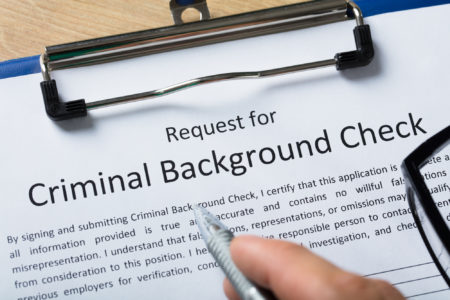Do you conduct background checks on your caregivers? For healthcare management, background checks are a fundamental, if not necessary, tool to hire reliable staff. This is especially important for healthcare aides who care for older adults and vulnerable patients.
“According to federal law, elder care facilities must not hire people who have committed violence against a patient or been neglectful of a patient for direct access positions. Direct access employees are employees who have direct access to the residents and whose jobs involve interacting with residents. Though the law prohibits nursing homes from hiring these types of people, it does not require nursing homes to use any specified types of background checks.” –
– the Nursing Home Abuse Guide
As the employer, it is highly advisable to rely on a third party for background screening because of the time, effort, and liability related to this task. Yet it’s a critical step to confirm that the individual is who they say they are and to be sure there are no red flags on record. Thorough screening is also a big step towards earning the trust of patients and their loved ones.
Which States Require Background Checks for Senior Caregivers?
Most states require criminal background checks for nursing home staff and assisted living aides, but not all. Even in the states that don’t require screening, hospitals and facilities are encouraged to screen applicants prior to employment at a minimum. The 10 states in which a candidate is not required to pass a criminal background check are the following:
- Alabama
- Connecticut
- Georgia
- Hawaii
- Montana
- New Jersey
- North Dakota
- South Dakota
- West Virginia
- Wyoming
What Should I Know About Requesting Background Checks?
The Fair Credit Reporting Act (FCRA) provides strict guidelines about how an employer can request a background check. Although not all states require national security and criminal background checks, an employer can decide to make that a requirement for their hiring process. However, not all states allow employers to access credit report information as part of an applicant’s background check.
As the employer, you must be sure that all candidates are being treated equally and fairly. That means that checks should be limited to the scope relevant to the job requirement. For example, DMV records are only relevant if driving is part of the job; or a credit report is needed only if handling money and finances is needed.
Under the Equal Employment Opportunity Commission (EEOC), each job applicant should be screened in the same manner. So, once you decide which type of screening is appropriate for the position, that same background check must be run on any and all applicants.
How do Background Checks Help Employers Protect Seniors?
Here are some of the factors that help verify a candidate’s identity and criminal history before being hired as a senior caregiver:
- The criminal check covers records from all relevant local, regional, and federal authorities. Plus, it will include any foreign countries where the individual has lived.
- It includes information from at least the last 7 years.
- The check includes identity verification, criminal history, previous employment, education, references, motor vehicle registration, possibly credit history, required drug and alcohol screening, and more.
- Information is collected from multiple sources: public records, verification with previous employers and universities, courthouse documents.
What Should I Look for in a Background Screening Provider?
Here are some things to look for when picking the right background check provider:
1. Compliance with FCRA
Under the FCRA, job applicants can sue employers who fail to comply with any requirement imposed by the law. These include disclosure and pre-authorization from the individual before running a background check, providing a pre-adverse action notice to the individual in case the report negatively impacts an employment decision, and sending a post-adverse action notice to the individual.
2. Deep Investigation into Candidates’ History
A basic criminal history report isn’t enough when serving a vulnerable population, like seniors living at home. When selecting a service provider for employee screening, ask what other signs of criminal behavior and lack of integrity they review. Specifically, careful screening should include things like:
- Abuse,
- Fraud,
- Embezzlement,
- Domestic violence,
- Drug abuse.
Going beyond the information that can be found in public records is important when it comes to entrusting a staff member with the responsibility of caring for the elderly in their home. For this reason, your organization should choose a consumer reporting agency that verifies the information provided by job applicants. This requires contacting references and previous employers to confirm the length of time and the role that the individual held as well as their performance on the job. It should also include verifying any educational degrees and training, as well as checking that the candidate holds the licenses and certifications required for the position are up to date.
3. Ongoing Screening Services
Periodic criminal checks are a good idea for staff in long-term positions with direct patient access. Best practice would be requesting thorough screening of current caregivers every two years to deter fraud and protect the safety of patients.
How Long Should It Take to Perform a Background Check on Caregivers?
The time it takes to perform a thorough background check depends on response time from verifying sources and public records. The final report can generally be delivered within a few days or make take up to two weeks if the individual has spent a significant amount of time oversees.
Related article: COVID-19 Ravaged Nursing Homes; Assisted Living May be the Solution.
Compliant Outsource Services for Call Management – PatientCalls
For reliable handling of inbound calls, that is HIPAA-compliant and experienced working in the healthcare field, contact PatientCalls.







